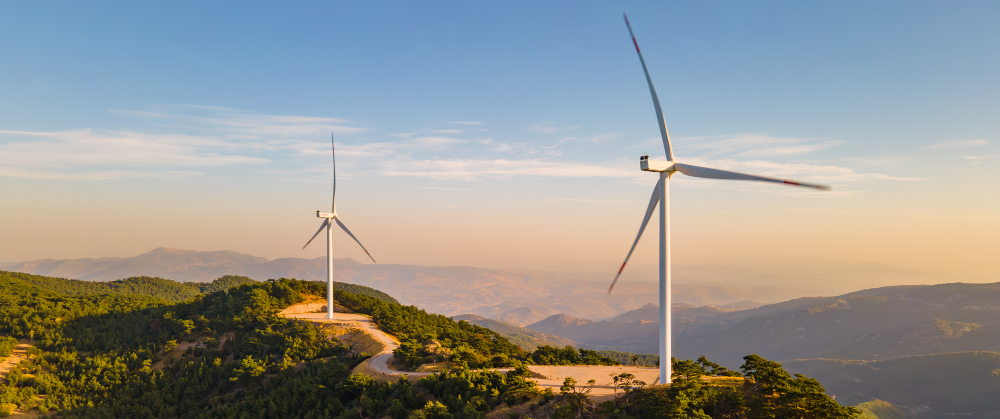
PIK’s Energy Transition Lab explores Transformation Pathways towards sustainable climate neutral energy supply and demand systems for the World, Europe and Germany.
Energy systems account for more than two thirds of global greenhouse gas emissions. Renewable energy and other clean technology is evolving rapidly, but the energy transformation deployment needs to accelerate rapidly to meet the requirements of climate protection, environmental sustainability, economic prosperity and affordable energy access especially for the world’s poor. To achieve the climate goals formulated in the Paris Agreement, near-zero emissions energy systems have to be achieved within the coming century. The need for deep decarbonization of energy systems coincides with a period of revolutionary technological developments, for instance in renewable power generation, digitalization, mobility and urban life, with profound implications for energy systems.
The energy transition lab, associated with the Transformation Pathways Department, aspires to respond to the higher than ever need for systems-based, interdisciplinary science on energy transformations. Crucial questions for energy transition research are:
- How can zero-emissions energy systems look like?
- How can the fast and deep transformation to netzero be achieved?
- How can the electrification of currently non-electric energy demands for transportation, industry and buildings go hand in hand with integration of large shares of variable electricity supply from wind and solar?
- What are residual demands for hydrocarbon fuels, and how can they be minimized? How can hydrogen, hydrogen derivates and sustainable biomass provide renewable fuels?
- With which policies can the country-level mitigation measures pledged for 2030 as part of the nationally determined contributions be strengthened in line with the long-term requirement of near-zero emissions?
- What are non-climate environmental impacts of energy supply and use, and how can they be minimized?
Deputy Lab Leaders
Research Themes
Understanding the global energy transition lies at the heart of deriving climate change mitigation pathways in line the Paris Agreement’s climate targets. This Theme explores the scope for fast and deep transitions of the global energy system, crucial interactions between different energy supply and demand sectors, as well as interactions between mitigation efforts of different world regions.
The EU is in the middle of the fundamental transformation towards becoming the first climate neutral continent by 2050. Using the energy-economy-climate model REMIND-EU, we develop and analyze transformation pathways and thereby support policy-making and stakeholder decisions to achieve this target. We also provide insights into the ongoing transformation of the transport, buildings and electricity sectors based on sectoral models and policy analysis.
We analyse the short-term ramp up of hydrogen and e-fuels as well as their long-term role, in particular in comparison to a direct electrification of end-use applications. A sectoral focus are the energy-intensive industries such as steel, plastics or cement production. We develop and apply several tools and models such as scenario modeling (REMIND), techno-economic analysis, technology diffusion models and material flow analyses.
The discipline of Research Software Engineering (RSE) aims to combine content-driven research with state-of-the-art software principles. RSE aims to improve transparency, reproducibility, robustness, efficiency (in terms of human and computational resources) and reusability of software used in research.
We are mainly responsible for the energy-economy-integrated assessment model REMIND and the Energy Demand Generating models (EDGE). In addition, we are supporting the development of the Potsdam Integrated Assessment Modeling Framework (PIAM) and the interplay of the underlying components, the energy-economy-integrated assessment model REMIND, the Energy Demand Generating Models (EDGE), the land-use model MAgPIE and a simple climate model.

Regarding methods, our research builds strongly on the energy-economy-integrated assessment model REMIND, which is complemented with sector-specific and bottom-up analyses. The REMIND developers have been a leading force in the advancement of the state of the art of integrated assessment modeling. This integrated view is completed by sector focussed models which enable us to analyze sectoral mitigation options in more detail. Those Energy Demand Generation Models (EDGE) will further be improved in the granularity of sectoral, regional, technology and policy detail to spell out concrete sectoral transformation. REMIND as well as the EDGE models will be improved to represent major economies and the near-term energy transition, as well as their broader environmental and social benefits and adverse effects. Other complementing models include techno-economic analyses, technology diffusion models and material flow analyses.
- Sitarz, J., Pahle, M., Osorio, S., Luderer, G., Pietzcker, R., 2024. EU carbon prices signal high policy credibility and farsighted actors. Nat Energy 1–12. https://doi.org/10.1038/s41560-024-01505-x
- Verpoort, P.C., Gast, L., Hofmann, A., Ueckerdt, F., 2024. Impact of global heterogeneity of renewable energy supply on heavy industrial production and green value chains. Nat Energy 9, 491–503. https://doi.org/10.1038/s41560-024-01492-z
- Rodrigues, R., Pietzcker, R., Fragkos, P., Price, J., McDowall, W., Siskos, P., Fotiou, T., Luderer, G., Capros, P., 2022. Narrative-driven alternative roads to achieve mid-century CO2 net neutrality in Europe. Energy 239, 121908. https://doi.org/10.1016/j.energy.2021.121908
- Odenweller, A, Ueckerdt, F, Nemet, GF, Jensterle, M, Luderer, G, Probabilistic feasibility space of scaling up green hydrogen supply. Nat Energy 7, 854–865 (2022). https://doi.org/10.1038/s41560-022-01097-4
- Luderer, G., Madeddu, S., Merfort, L., Ueckerdt, F., Pehl, M., Pietzcker, R., Rottoli, M., Schreyer, F., Bauer, N., Baumstark, L., Bertram, C., Dirnaichner, A., Humpenöder, F., Levesque, A., Popp, A., Rodrigues, R., Strefler, J., Kriegler, E., 2021. Impact of declining renewable energy costs on electrification in low-emission scenarios. Nat Energy 1–11. https://doi.org/10.1038/s41560-021-00937-z
- Pietzcker, R. C., Osorio, S., Rodrigues, R. (2021): Tightening EU ETS targets in line with the European Green Deal: Impacts on the decarbonization of the EU power sector. Applied Energy, 293, 116914, doi: 10.1016/j.apenergy.2021.116914.
- Ueckerdt, F., Bauer, C., Dirnaichner, A., Everall, J., Sacchi, R., Luderer, G. (2021): Potential and risks of hydrogen-based e-fuels in climate change mitigation. Nature Climate Change, doi: 10.1038/s41558-021-01032-7.
- Strefler, J., Kriegler, E., Bauer, N., Luderer, G., Pietzcker, R. C., Giannousakis, A., Edenhofer, O. (2021): Alternative carbon price trajectories can avoid excessive carbon removal. Nature Communications, 12, 2264, doi: 10.1038/s41467-021-22211-2.
- Bertram, C., Luderer, G., Creutzig, F., Bauer, N., Ueckerdt, F., Malik, A., Edenhofer, O. (2021): COVID-19-induced low power demand and market forces starkly reduce CO2 emissions. Nature Climate Change, 11, 193–196, doi: 10.1038/s41558-021-00987-x.
- Rauner, S., Bauer, N., Dirnaichner, A., van Dingenen, R., Mutel, C., Luderer, G. (2020): Coal-exit health and environmental damage reductions outweigh economic impacts. Nature Climate Change, 10, 308–312, doi: 10.1038/s41558-020-0728-x.
- Luderer, G., Pehl, M., Arvesen, A., Gibon, T., Bodirsky, B. L., Sytze de Boer, H., Fricko, Ol., Hejazi, M., Humpenöder, F., Iyer, G., Mima, S., Mouratiadou, I., Pietzcker, R. C., Popp, A., van den Berg, M., van Vuuren, D., Hertwich, E. G. (2019): Environmental co-benefits and adverse side-effects of alternative power sector decarbonization strategies. Nature Communications, 10, 5229, doi: 10.1038/s41467-019-13067-8.
- Luderer, G., Vrontisi, Z., Bertram, C., Edelenbosch, O. Y., Pietzcker, R. C., Rogelj, J., Sytze De Boer, H., Drouet, L., Emmerling, J., Fricko, O., Fujimori, S., Havlík, P., Iyer, G., Keramidas, K., Kitous, A., Pehl, M., Krey, V., Riahi, K., Saveyn, B., Tavoni, M., Van Vuuren, D. P., Kriegler, E. (2018): Residual fossil CO2 emissions in 1.5–2 °C pathways. Nature Climate Change, 8, 626–633, doi: 10.1038/s41558-018-0198-6.






